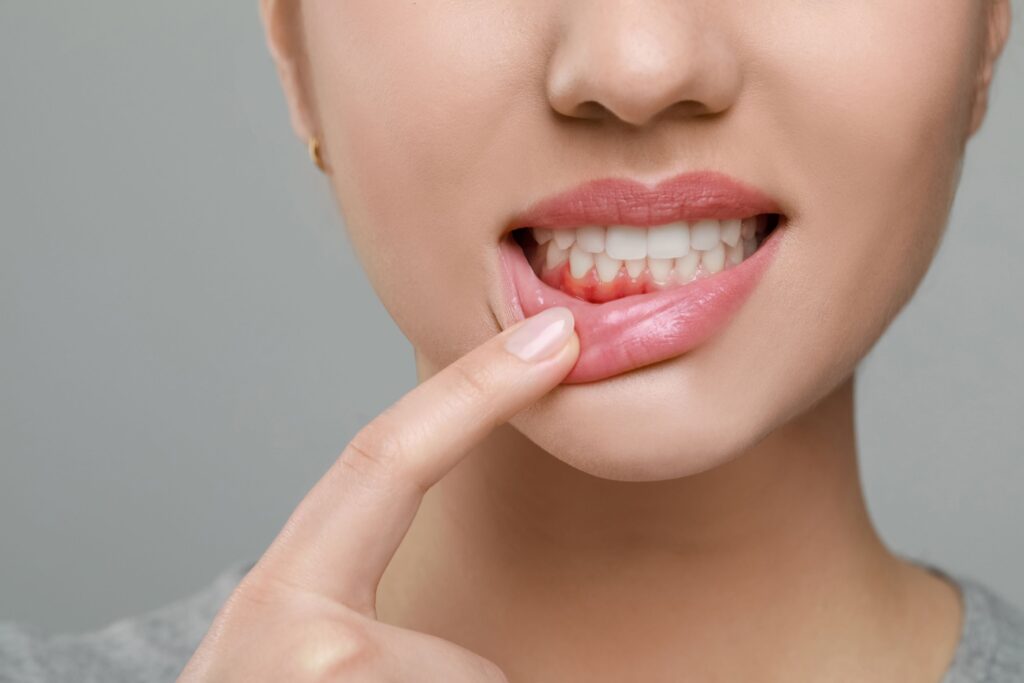
Paying attention to your dental condition ensures you’ll spot changes that might point to more serious underlying concerns. For example, if your gums bleed or seem puffier than usual during your daily dental hygiene routine, you may have developed the earliest form of gum disease, gingivitis. Brushing and flossing more thoroughly can sometimes halt its progress, or prevent it from occurring in the first place.
However, soft, spongy gums can also result from another oral condition that may require professional intervention. Continue reading to learn what causes this symptom and what to do about it!
How Does My Diet Impact My Dental Health?
Although your dental hygiene habits play a crucial role in your overall oral health, your diet also has a significant impact. You likely already know that eating overly sugary foods attracts harmful bacteria that contribute to common concerns like cavities or periodontal problems. Also, eating anything too hard or crunchy, like candy or ice cubes, can chip, crack, or break your teeth.
Not only that, but you must eat wholesome foods to provide all the nutrients your body needs to support a happy, healthy smile. For instance, eating dairy products like milk, yogurt, and cheese contributes to strong teeth and bones because they contain calcium. You must also eat citrus fruits like oranges to protect your gums from scurvy.
What is Scurvy?
This disease occurs when your body doesn’t have enough vitamin C, which is necessary to produce connective tissues like collagen. It can cause spongy, swollen, or bleeding gums along with joint pain, fatigue, anemia, hair loss, and skin that bruises easily. In severe cases, you might even experience intense bleeding, infections, or bone fractures that can be fatal.
How Can I Prevent Scurvy?
Thankfully, increasing your vitamin C levels can effectively prevent and treat scurvy. However, the human body doesn’t produce this ingredient by itself, so it’s imperative that you eat plenty of foods that contain the essential nutrient. Fortunately, it’s relatively easy to increase your levels. You can improve your vitamin C intake by consuming:
- Citrus fruits like oranges and grapefruits.
- Other fruits like strawberries, kiwis, and watermelon.
- Leafy greens like broccoli, Brussel sprouts, and spinach.
- Tomatoes.
- Juices that are fortified with it.
- Supplemental vitamin C oral capsules or chewables.
If you’ve noticed that your gums are soft, dark, inflamed, or bleed when you brush or floss, it’s time to contact your dentist. These symptoms can be caused by more than one condition, and you’ll need their help to identify and treat the root problem.
About the Practice
Patients at Rauchberg Dental Group benefit from a team of general dentists and specialists who work together to offer a full array of services all under one roof. They take the time to get to know you so they can tailor treatment plans to your unique needs, regardless of your current dental condition. Whether you need a basic checkup and cleaning or require a more complex procedure, they have the experience and state-of-the-art equipment to help. You can request an appointment on the website or call (973) 718-9887.
